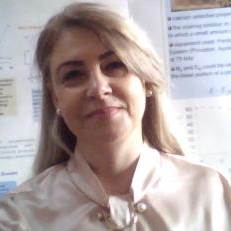Smart Materials for Dental Applications and Implants
A special issue of Materials (ISSN 1996-1944). This special issue belongs to the section "Biomaterials".
Deadline for manuscript submissions: closed (20 October 2023) | Viewed by 572
Special Issue Editors
Interests: functionalized advanced materials: nanoparticles, polymeric nanocomposites for clinical applications; denture bases; 3D printing materials; nanotechnology; chemical sensors; a.c. impedance spectroscopy
Interests: nanomaterials; oral and maxillofacial surgery; CAD/CAM; 3D printing; implant dentistry; biomaterials
Special Issues, Collections and Topics in MDPI journals
Special Issue Information
Dear Colleagues,
In the last decade, both evolutionary and revolutionary trends in the field of dental materials science have been noted. Of these, the emphasis has been on the progress of smart materials used in disposable medical supplies, dental materials, implants, dressings, or oral drug delivery systems. Among such advanced systems, the smart polymeric materials present some advantages as the ease of handling and the realization of various shapes (film, sheet, fibers, etc.), easy to process, the relatively low cost compared to the desired physical and mechanical properties. By analogy with the biological sciences, smart systems can meet functions of activators, sensors, or control, and then could incorporate a “learning function". Thus, the smart material can detect changes in the environment and modify its own characteristics so as to control the variations that have generated this change. Consequently, the notions of "passive" (which allows only the reaction to the environment) and "active " (which reacts discreetly to external pH, moisture, mechanical, thermal, or electrical constraints, adjusting its characteristics through a feedback system) were associated with the smart materials. Extended research of the domain reflects that in dentistry is preferred an “active” rather than “passive” biomaterial, although the bio-responsiveness depends on their interaction with the oral environment. In the meantime, the antibacterial self-healing dental nanocomposites whose “strategic” actions are bioinspired represent the smart materials able to assure an extended life for dental restorations. No matter how the smart materials act in dentistry, passive or active, they are used in preventive or prosthetic dentistry, restorative activity, and in periodontal disease. The complexity of obtaining, functioning, and applying intelligent materials in dentistry involves the harmonious combination of knowledge and co-operation of specialists working in the most varied fields: materials science, analytics, complex material characterization, dental studies, in vitro and in vivo clinical determinations, microbiology, machine learning. This Special Issue aims to bring in front original works and studies on identifying novel dental smart materials and on developing and applying novel experimental and computational methods for understanding their dynamics, functional mechanisms, and interactions with the oral environment, as well as review papers on dental smart materials. The Special issue is focused on the used of the smart materials in all fields of dentistry.
Prof. Dr. Eugenia Eftimie Totu
Dr. Corina Marilena Cristache
Guest Editors
Manuscript Submission Information
Manuscripts should be submitted online at www.mdpi.com by registering and logging in to this website. Once you are registered, click here to go to the submission form. Manuscripts can be submitted until the deadline. All submissions that pass pre-check are peer-reviewed. Accepted papers will be published continuously in the journal (as soon as accepted) and will be listed together on the special issue website. Research articles, review articles as well as short communications are invited. For planned papers, a title and short abstract (about 100 words) can be sent to the Editorial Office for announcement on this website.
Submitted manuscripts should not have been published previously, nor be under consideration for publication elsewhere (except conference proceedings papers). All manuscripts are thoroughly refereed through a single-blind peer-review process. A guide for authors and other relevant information for submission of manuscripts is available on the Instructions for Authors page. Materials is an international peer-reviewed open access semimonthly journal published by MDPI.
Please visit the Instructions for Authors page before submitting a manuscript. The Article Processing Charge (APC) for publication in this open access journal is 2600 CHF (Swiss Francs). Submitted papers should be well formatted and use good English. Authors may use MDPI's English editing service prior to publication or during author revisions.
Keywords
- dental smart nanocomposites used in prosthodontics, and endodontics
- dental smart materials in preventive dentistry
- dental smart materials in restorative dentistry, - smart polymers
- nanocoating
- 3-D printing dental smart material
- dental smart materials for treatment in periodontal disease
- self-healing dental materials
- dental smart materials for regenerative dentistry
- antibacterial and antimicrobial effect
- dental smart materials safety: cytotoxicity, genotoxicity, and health hazards
- hydrogel
- controlled delivery systems
- chitosan
- hydroxyapatite
- hyaluronic acid
- controlled drug delivery system







